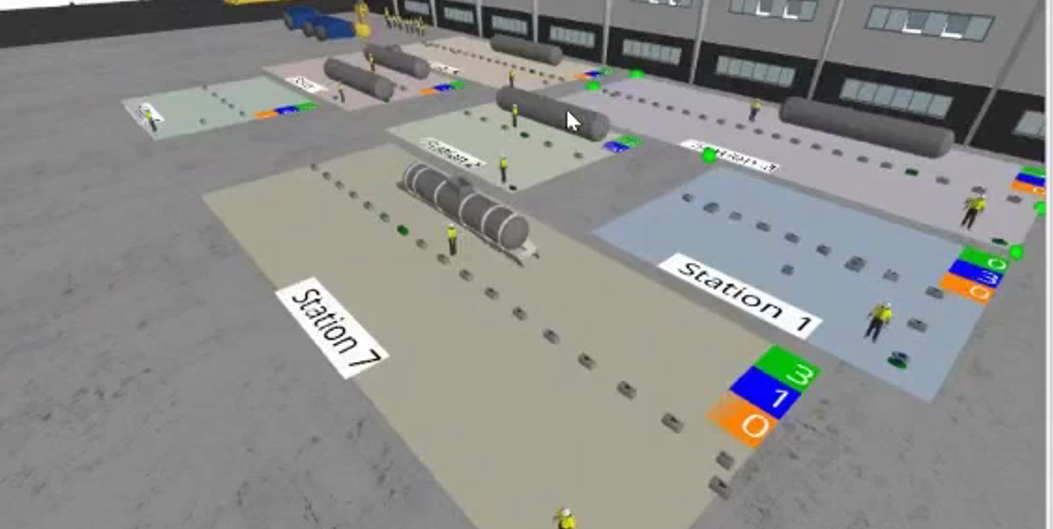9 Questions with Mohammed Malaibari
Our PhDs are playing a significant role within our program, and in the broader industry.
Here, we introduce you to Mohammed Malaibari, from one of ACM CRC’s university partners, UNSW Sydney.
Mohammed Malaibari is a PhD candidate in the School of Mechanical and Manufacturing Engineering at UNSW Sydney. He holds a Master of Science in Mechanical and Manufacturing Engineering from the same institution. His primary research interests include Digital Twin, Knowledge Graph, Data Management, Industry 4.0, and Circular Economy.
1. Under which ACM CRC Research Program does your PhD project sit?
My PhD is part of Research Program 2, Research Program 3 and Research Program 4.
2. What is the focus of your PhD?
The focus of my PhD research is on enhancing data management in the design stage using Digital Twin technology integrated with knowledge graphs. This approach addresses heterogeneous data and resolves data silos in manufacturing environments.
Additionally, I’m optimising resource allocation in labour-intensive manufacturing through advanced machine learning techniques. This combination of technologies aims to improve decision-making, reduce costs, and enhance operational efficiency in the manufacturing industry.
3. When did you become interested in this field?
I became attracted to this field when working as a teaching assistant for a course on Manufacturing Industrial Systems Simulation. This role allowed me to delve deeply into the complexities of manufacturing systems, sparking my enthusiasm for the subject. Additionally, the recent advancements in AI and IoT have opened up new and exciting opportunities, further fuelling my interest and commitment to exploring innovative solutions in this area.
4. What made you interested in it?
My interest in this field arises from the complexity of manufacturing systems and the potential for process representation, measurement, and improvement. The emergence of the Digital Twin concept has particularly captivated me, offering innovative capabilities and opportunities for developing cutting-edge solutions. This combination drives my passion for advancing in this area.
5. What do you hope to achieve through your PhD? What challenges are you hoping to solve?
I aim to develop a framework for the creation of digital twins specifically during the design phase in the manufacturing industry. My primary objective is to establish a unified data repository that addresses prevalent issues such as data heterogeneity and data silos, which currently impede seamless data integration and utilisation. By leveraging the digital twin framework and integrating advanced machine learning techniques, I will explore strategies to optimise resource utilisation to enhance productivity and reduce operational costs.

6. What are your long-term goals/ambitions?
I aim to enrich the manufacturing field with impactful research that can be implemented in real-world applications. I seek to influence industry standards, promote sustainable practices, and mentor future engineers, fostering a collaborative and forward-thinking industry culture.
7. What’s the best thing about being an ACM CRC PhD student?
The opportunity to apply my research in real-life settings. This allows me to address actual problems faced by industry leaders, making my work highly relevant and impactful. Being part of this program helps me see the big picture and understand how my contributions fit into the broader context of the industry and its future.
8. What one piece of advice would you give to people thinking of undertaking a PhD in the composites manufacturing area?
My advice is to stay curious and proactive. Engage with industry leaders, seek out practical applications for your research, and embrace collaboration. This will make your work more impactful and relevant, enhancing your PhD experience and career prospects.
9. Tell us something about you that would surprise/impress people?
For the past 12 years, alongside my studies and primary work, I have been actively engaged in the real estate business. This experience has given me a unique perspective on applying academic knowledge to real-world situations. During my second year of undergraduate studies, I received an exclusive job offer to start immediately upon graduation. Additionally, I graduated first in my school. Furthermore, I have been offered a faculty position at my home university, which I will begin after completing my PhD, allowing me to contribute to academia and inspire future students.
Interested to know more?
Visit our Education and Training page to learn more on our HDR Program, and how it’s helping to achieve industry transformation.




